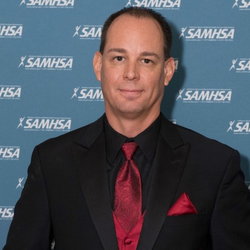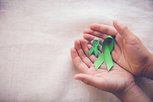 https://www.soberrecovery.com/images/og-image.gif
https://www.soberrecovery.com/images/og-image.gif
Recovery Hero of the Week:
Tom Cruz
By SoberRecovery, Staff Writer
 250
250
https://cimg0.ibsrv.net/cimg/www.soberrecovery.com/250x250_85-1/964/Tom-Cruz_03_crop-268964.jpg
250
250
https://cimg0.ibsrv.net/cimg/www.soberrecovery.com/250x250_85-1/964/Tom-Cruz_03_crop-268964.jpg
"The biggest thing is that the leaders at the higher levels understand mental health and know that it’s not a weakness now."
Age: 41
U.S. Army Master Sergeant
Currently living in Florida
Tom Cruz is a 2017 SAMHSA Voice Awards Consumer/Peer/Family Leadership award recipient. He is an Active Duty Master Sergeant in the Unites States Army with more than 22 years of service. Having attempted to take his own life in 2010, MSG Cruz is now a huge mental health advocate for veterans. This year’s Voice Awards program, hosted by Chef Robert Irvine, shined a spotlight on those who give hope and support to service members, veterans and their families who have faced behavioral health challenges.
We are honored to have had the opportunity to speak with Tom Cruz. Below is a transcript of our interview.
To start off, can you tell me a little bit about your mental health history?
My first experience with mental health was back in 2008 when I was in Iraq. We had a month left and my boss wanted to go home. He said that his kid was having trouble with school, but there was a deeper issue unknown to us. The next news we received was that he had killed himself. We were devastated.
So me and another buddy had to come home, bury him, go back to Iraq, get the guys ready, bring them back home, and have another funeral. Afterwards, I went and sought help from outside the base but the mental health professional who saw me just thought I was grieving. After 30 minutes of her saying “Hey you’re going to be okay” and “You’re just grieving,” I told her “Well, I’m going to ride my motorcycle into the wall.” She just laughed at me and just let me go.
At that period, I swore off getting any help because if that was the help I was going to get, why get it? Fast forward to November 3, 2010, I had a suicide attempt. I held my then-fiancé hostage and I was going to take both of our lives. She, through people who were calling and through negotiations, was the one who kept her head level and was able to talk me out of being able to do that.
I don’t remember a lot of the situation and the parts that I do remember are not the good parts, but obviously having her, she knows it all. She had the chance to go home and leave, but instead she—while I was at the Walter Reed National Military Medical Center and the psych ward—stuck out every day. She made the hour and a half drive through DC to see me every day and really was my rock and helped me know that I really did have somebody there to fully support me during that time.
Now my wife and I go out and we talk about how to recover through the military system, break the stigma of staying in, keep a clearance, and also have a family—because my fiancé is now my wife. So we try and go and give speeches to units and try to be the lived experience to encourage others to go seek help.
Since going back into the Army, what would you say is the military’s current idea of mental health?
It’s actually improved greatly amongst the leaders. The biggest thing is that the leaders at the higher levels understand mental health and know that it’s not a weakness now. Now we just really have to force it down to the lowest levels—the guys that actually have to get the job done.
If you’re one man doing a specialty job, you’re relied on to do that job, so if you’re spending time out for treatment that may be seen as a weakness. In reality though, when you get those guys to get help, you’re going to get a better soldier who’s going to be resilient instead of one that you’re going to continue to push until, at some point, is going to break. It’s just inevitable and, when they break, you’re going to lose them in a dramatic way, whether they get out and do something or they just do something while they’re in. So we’ve got to try to mend them and fix them as they come forward. And hopefully, giving our stories, that’s what we’re trying to do.
Obviously, I’m still in. I’ve kept my part of the deal and I believe the Army has too which is, again, something that I try to go and tell troops that it can be done. I’ve done it, and I think the Army is doing a good job in trying to get that out.
And as far as long-term recovery goes, what does that look like for you today?
I have all my doctors and I see them on an as-needed basis. But because of this job I have a lot of mental health friends, and so I do a lot of talking to them when I have issues. I also try to do more holistic-type stuff now—like who was I before all this happened? For me, it was photography. I like doing photography. So when I know that I may be having a bad day or I need separation time, I go out and take my camera and do that.
So for long-term recovery, I keep learning about my triggers; I learn about myself. I try to figure out what aggravates me or what triggers a certain mood. I try to figure that out with the help of my wife. And then I have professional backups who I know I can go to, and I have my means of doing photography or going for walks or taking a break and going to play with my son—stuff that I know brings me back down to a calmer level.
Something that also stands out to me is your use of social media. Can you describe what you do with that?
It’s basically peer-to-peer. The veteran population is tired of dealing with the types of therapists that I had or the VA, and so social media is a great playground to round ourselves up. So we troll Facebook or social media, looking for veterans who have mental illnesses or family issues or financial issues, and we encompass those people. Or they come to us willingly, saying I need help with bills, or finding a job, or I’m having a rough day, and our admins will sit there and talk to them as long as it takes. They’re backed up by resources either locally or nationally, to be able to sit there.
We know—because most of us are in recovery or going through the same stuff—that we can only be a Band-Aid fix. We really need to just solve the instant situation, whatever that may be—but then bring them to the organizations that can help whether it be TAPS, SAMHSA, whatever organizations that can handle those veterans issues and then try to link them up with something local so that they know what they have immediately around them.
So we have a lot of people that are very good at social media trolling, or looking into locations. If a veteran is in Kansas, then being able to reach out either to the social media world saying, “Who’s in Kansas? Who knows where this is?” Or, Googling it and saying, “Hey, you need a job? Well, here’s USAJobs.com and there are all the jobs that are coming up for Kansas.” So we have a lot of real good people who do this. Me, I’m only one of thousands that continue to do this and it’s just mainly placing ourselves up and taking charge of doing our thing.
Now having gone through everything that you did, what is your biggest takeaway that you can share with others?
One of the biggest things that I try to tell people now is that I shouldn’t have stopped therapy after 2008. It’s almost like dating—we’ve all dated a lot of people, in order to get to that one. So that’s how therapy is. Okay, so that one didn’t work, or you didn’t click, well, there’s more around. Reach out, find more. Talk to friends who have or reach out to organizations that have that capability to find you another one, and just keep going until you find somebody that you can click with. And that’s what I try to help encourage now as far as recovery and resilience.
Finally, what are your thoughts about the Voice Awards? Any expectations or emotions?
Excited. It’s a big audience and a big honor. I have a lot of people to thank for this that have gotten me to this point and have helped me and watch over me so I’m going to miss a bunch of people but I’m pretty excited and honored to be getting the Consumer Peer Award.
Would you like to be featured in our Recovery Hero of the Week series? Send in your story (500–1000 words) to [email protected] and you might just be selected as our next featured hero. Thank you for spreading the message!






